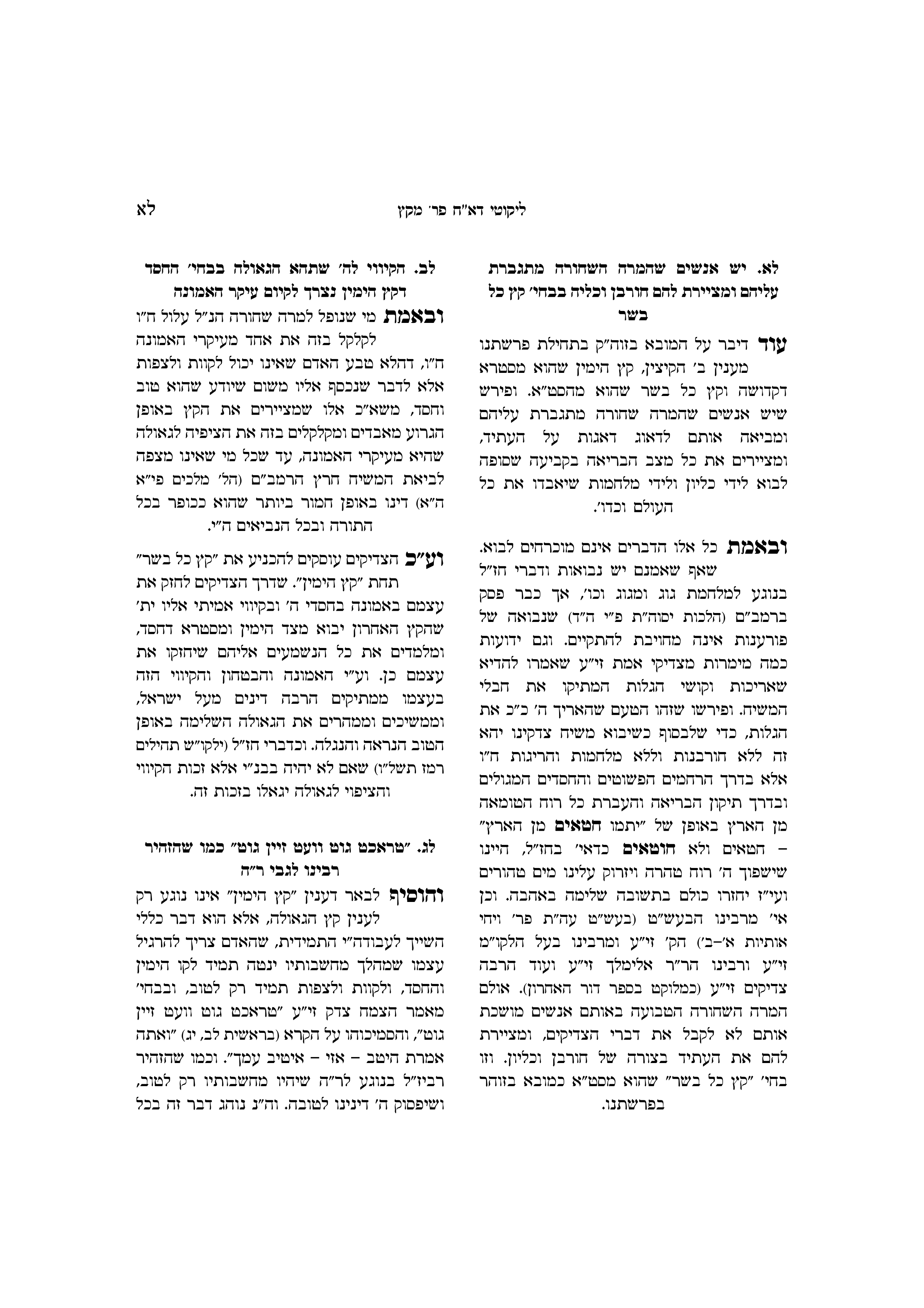
I don't know if this will answer your question directly. However, I think it is very important to add to the conversation.
This is an excerpt from one of Reb Itche Meir Morgenstern Shlita's weekly emails. (To be precise, it's from Parshas Mikeitz 5781.) It is part of the Nishmasin Chaditin section of the email. It is where they record many things the Tzaddik said over in a particular week.
I'll try to translate to the best of my ability.
He (The Rebbe) spoke on which is brought in the Zohar Hakadosh in the beginning of our Parshah, which speaks about the concept that there are two end of times. The Zohar says there is an end of times which comes from the right, which is associated with the holy side of things. And there is a end of times associated with the verse of "The end of all flesh" (Genesis 6, 13), which is associated with the evil side of things.
The Rebbe explained. There are people in which depression overtakes them, which causes them to worry about the future. Therefore, they depict all of the circumstances of the world, that it will come to obliteration and wars in which the whole world would be destroyed, etc. God forbid
However, in truth all of these things don't have to happen. Even though we find prophecies and statements of our sages regarding the wars of Gog Umagog. (Which speak about these ideas that the world will come to a state of destruction at the end of time). You don't have to believe they will come true, since it's already brought in the Rambam, that a prophecy which describes punishments isn't required to be fulfilled.
Additionally, it is known from many statements of the true Tzaddikim, in which they state clearly that the lengthening and hardships of the exile, sweetened the "birth pangs of Moshiach". With this, they explained that this is the reason which Hashem lengthened the exile so much. In order that in the end when Moshiach will come, it will be with no destructions, wars or killings, God forbid. Rather by way of simple compassion and revealed kindness.
With the way of repairing the world and removing the spirit of impurity. By removing the sins, not the sinners. As is described by our sages. That is, Hashem will pour a pure spirit and spray on us pure waters. And through this, everyone will return with a complete Teshuvah out of love.
Similarly, it is brought from the Baal Shem Tov, Rebbi Nachman, Reb Elimelech of Lizhensk and many other Tzadikkim. (Many of these sources are brought in the Sefer Dor Achahron.)
However, the depression, which is entrenched in these people (who constantly make negative predictions about the future), pulls them not to accept the words of the Tzadikkim. And they will continue to depict the future in a way of destruction.
This is what the Zohar Hakadosh refers to, when he says the verse of "The end of all flesh" (Genesis 6, 13) comes from the side of evil in the world.
And in truth, someone who falls into the aforementioned depression. is destined (God forbid) to ruin one of the foundations of Jewish faith. For the nature of a person is, that he can only hope for something which he desires, since he knows (that this which he desires) is only good and kindness. However, those who depict the end of times in a depiction which is negative are destroying the anticipation for redemption. Which is one of the foundations of Jewish faith. Which is so severe, that the Rambam states that one who doesn't anticipate the redemption, his judgment is extremely harsh. Since he is considered a heretic in all of the Torah and the Prophets.
(Translators note: I don't think the Rebbe is bringing this down to make anyone feel they are a heretic, God forbid. Since all that would do is pull the person further away from the service of God. Rather, I believe he brings this Rambam to show the severity of the matter at hand. God forbid for someone to think they are a heretic. Since the purpose of these harsh statements is not to label ourselves. Rather, they are there to give us an understanding of the importance of the matter at hand.)
Therefore, the Tzadikkim work to suppress the evil end of times under the holy end of times. For the way of Tzadikkim is to strengthen themselves with faith in the kindness of Hashem, and with TRUE yearning that Hashem will bring the end of days from a place of kindness. And they teach all their listeners to strengthen themselves like this. And through this very hope will help speed up the redemption in a way of open and revealed goodness.
As our sages teach us, "if Klal Yisroel will only have the merit of the hope and anticipation for redemption, they will get redeemed through this very merit."
I tried translating to the best of my abilities. I definitely didn't do anything close to a perfect job. Therefore, I want to make it clear that all mistakes, misunderstanding and errors etc. should be attributed to me and me alone. And God forbid, to the Holy Tzaddik Reb Itche Meir Morgenstern Shlita, and his holy students. Additionally, some of the concepts mentioned here are sourced in Kabbalah, making it very hard to translate literally.
In summary, the point I am trying to bring is, many have people a false understanding of what Ikvisa Dimeshicha (birth pangs of Moshiach) actually represents. And the repercussions of one who misunderstands what Ikvisa Demeshicha represents.
The main point is that we should continue to hope and anticipate for the day which Hashem's full glory will be revealed in the most awesome and loving way!

